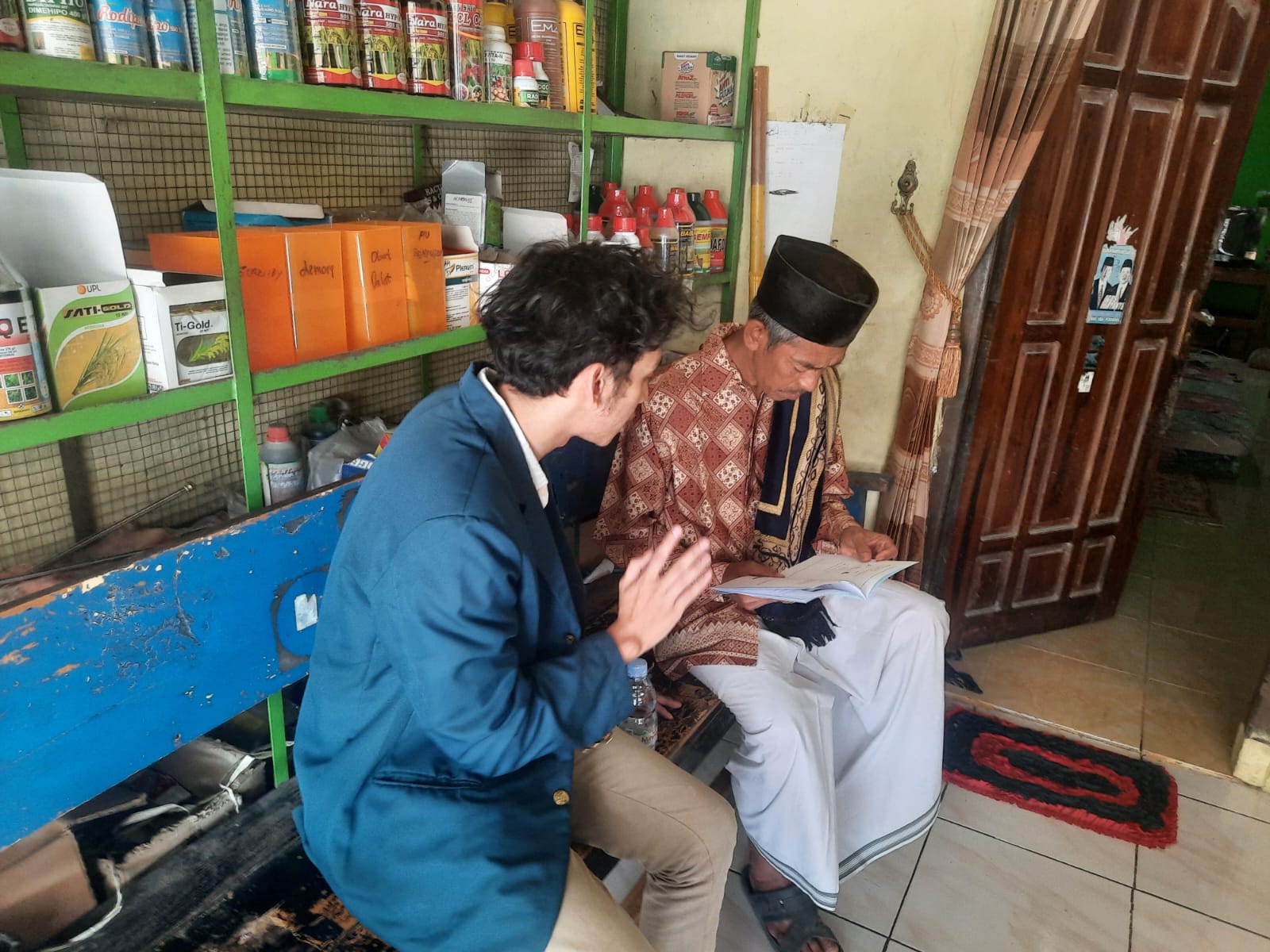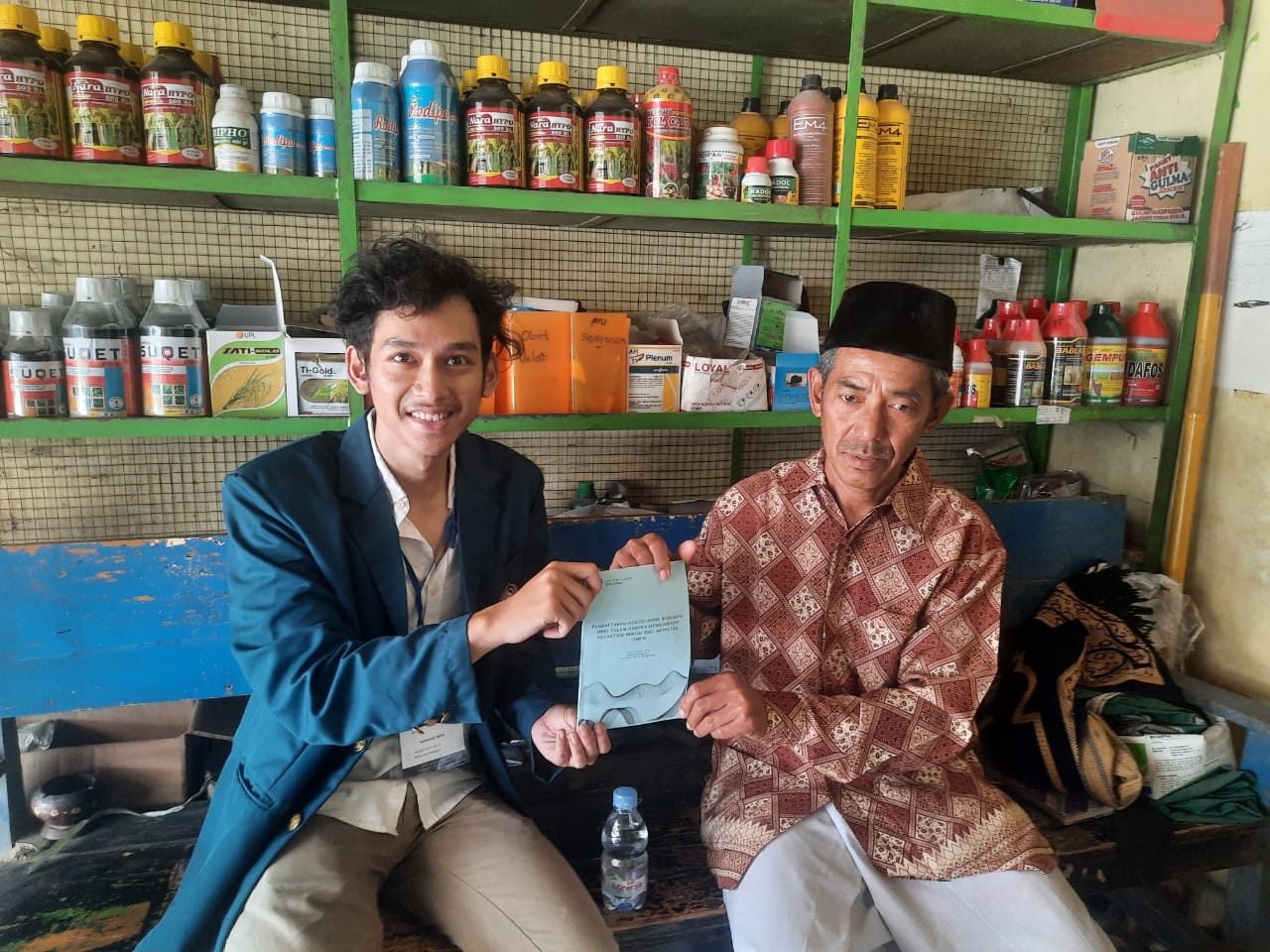Majenang (26/7/2023) – Micro, Small and Medium Enterprises (MSMEs) are pillars supporting the national economy. The existence of MSMEs has an important role in supporting national economic growth on a micro and macro scale. One of the impacts of MSMEs on the welfare of people’s lives is to help reduce the level of unemployment by absorbing the national workforce. The availability of jobs will certainly provide opportunities for groups who are not working and need income to be empowered. The development of MSMEs will also indirectly affect the development of welfare for unemployed groups so that they can develop their interests and creativity into something that can be traded for economic benefits.
The large number of people who are active in the MSME sector will also support efforts to improve the national investment climate. A promising business has the potential to attract the attention of local and foreign investor groups to invest in their shares. This cycle shows the existence of cohesiveness between the empowerment of MSME units and national economic growth so that the role of MSME can be likened to a critical engine for the progress of the national economy. Therefore, it is important to carry out a regeneration program for regional MSME activists to boost Indonesia’s economic growth index in the long term.
Entrepreneurship is one of the common professions that people in Majenang Village are interested in apart from being an agrarian profession. In general, business actors in Majenang Village are self-employed in the home industry sector, especially in the segment of handicrafts and food production. Based on Law No. 30 of 1982 concerning Compulsory Company Registration, every business, both individuals and groups, is required to be registered. The business registration document is proven by the identity of a business known as the Business Identification Number (NIB). The position of NIB legally is as an identification of business activities. In this case, business registration aims to strengthen the legality of an economic business and provide legal certainty for business actors in running their business. Business actors who have a NIB will certainly benefit because a business has been recognized for its legitimacy by the state, so it will facilitate the licensing process for business activities in the future as well as access to the needs of business actors with stakeholders related to business development and empowerment programs.

In its development, business registration can be done online through the Online Single Submission (OSS) website, which is an electronic and integrated registration system. The implementation of Risk-Based Business Licensing through the OSS System is the implementation of Law Number 6 of 2023 concerning the Stipulation of Government Regulation in Lieu of Law Number 2 of 2022 concerning Job Creation to Become a Law. Risk-Based OSS must be used by Business Actors, Ministries/Institutions, Local Governments, Special Economic Zone Administrators (KEK), and Free Harbor Free Trade Area Concession Agency (KPBPB). Based on Government Regulation Number 5 of 2021 there are 1,702 business activities consisting of 1,349 Standard Classification of Indonesian Business Fields (KBLI) which have been implemented in the Risk-Based OSS System. With all forms of simplicity and efficiency in terms of procedures and mechanisms, it will be very unfortunate if there are still many MSME activists who do not understand the advantages of registering for NIB and the procedure for registering NIB online. Concretely, this program is aimed at providing insight to the MSME community in Majenang Village about the importance of obtaining legality from business activities and assisting them in the business registration process based on currently available regulations.
This program is held in the concept of face-to-face learning with MSME activists in Majenang Village regarding technical guidelines for NIB registration through OSS according to Government Regulation (PP) Number 5 of 2021 concerning the Implementation of Risk-Based Business Licensing. The socialization was carried out using the door-to-door method to ensure that every MSME activist in the Majenang Village area was able to understand the technical implementation instructions regarding online NIB registration through OSS. The implementation of the socialization begins with the delivery of material orally followed by assistance in the field practice of NIB registration through electronic media. MSME actors are given modules (textbooks) so that the material presented can be reviewed and studied again. Thus, it is hoped that the dissemination of operational standards and procedures related to NIB registration will contribute to building a village community that is aware of the law.

